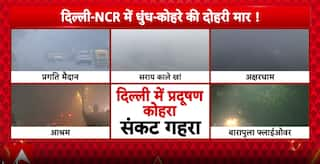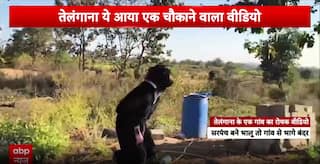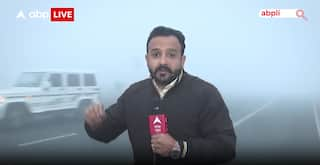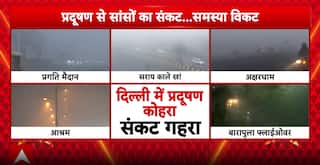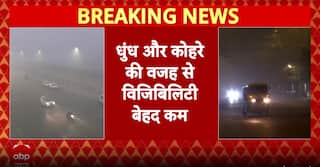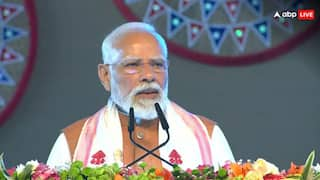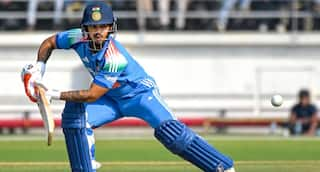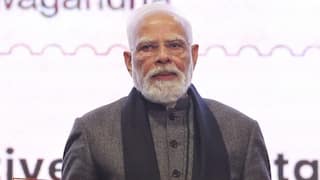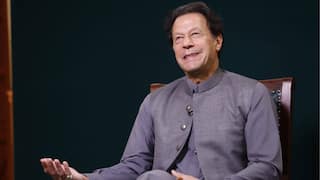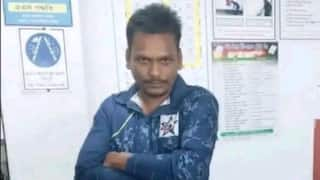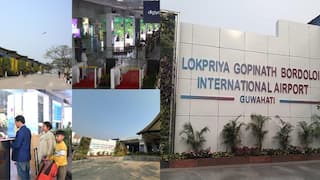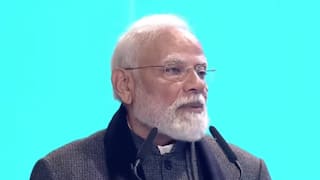Explorer
Amitabh Bachchan, Rajiv Gandhi and a tale of two families
The families were, in fact, so close in those days that when Rahul and Priyanka were growing up, they would address Amitabh as mamun, an Awadhi term for ‘maternal uncle’.

Former Prime Minister Rajiv Gandhi (L) with actor Amitabh Bachchan. Photo: File
Rajiv Gandhi and Amitabh Bachchan’s close friendship had started early and the trust they had in each other was unquestionable. So close were the families at one point of time that Sonia Gandhi’s earliest memories of India are linked with the Bachchans. It was, after all, Amit, as she affectionately addressed him, who received her at Delhi’s Palam Airport on 13 January 1968, on a chilly winter morning. And she would spend the next 43 days, before her civil marriage to Rajiv Gandhi on 25 February, as a guest of Teji and Harivansh Rai Bachchan. Family friend Mohammad Yunus and Indira Gandhi’s confidant T.N. Kaul had, in fact, zeroed in on the Bachchans after the then prime minister made it clear that she disapproved of her future daughter-in-law putting up at a hotel or staying with the Gandhis before the wedding. During an interview to Dharamyug magazine in 1985, Sonia offered insights into her initial association with the Bachchans: ‘Mummy [Indira] had asked me to stay with the Bachchans [before her wedding] so that I could learn Indian customs and culture from close up. Slowly I came to learn a lot from that family. Teji aunty is my second… No, my third mother. My first mother is in Italy and the other was my mother-in-law Mrs Indira Gandhi, the third is Teji Aunty. Amit and Bunty [Ajitabh] are my brothers.’
At the time that Sonia refers to, Amitabh was yet to become a superstar and Rajiv was a carefree soul working as a pilot with Indian Airlines. Amitabh, along with Ajitabh and the younger Gandhis – Sanjay, Rajiv and Sonia – would frequently be spotted on the India Gate lawns, enjoying ice cream. Rajiv used to own an old Lambretta scooter, which was often plagued by ignition problems and refused to budge. Invariably, either Sanjay or Amitabh would be given the dubious ‘honour’ of pushing it along for a few metres in a bid to make the engine start. The families were, in fact, so close in those days that when Rahul and Priyanka were growing up, they would address Amitabh as mamun, an Awadhi term for ‘maternal uncle’.
In 1991, when Rajiv Gandhi was assassinated in Sriperumbudur, it was Amitabh who hurried back from London where he had gone on a visit, landing in Delhi around the same time as Rahul, who was returning from Boston. Bachchan then took charge of the funeral arrangements, along with Priyanka, so that Rahul could stay home to see to his mother’s needs and accept condolences pouring in from friends and family.
In 1992, a year after Rajiv’s death, Bachchan was asked if he was considering joining politics to assist the widowed Sonia. His reply was carefully noncommittal: ‘By force of habit, I find myself totally involved in any work I take up and want to complete it at any cost. Now that I’m deciding to cut down on my films [this was in October 1992], people surmise that it is because I intend to join politics. Yes, Rajiv was a very dear friend. It is also true that I am one of the Soniaji’s genuine well-wishers and I’m close to her family. But how will my entering politics ease her concerns and her pains? And why should she need me or require my help? She is an extremely strong, sensible, competent person, fully capable of taking her own decisions. She is aware of what she should and should not do,’ Amitabh told Sumant Mishra in the book Main Amitabh Bol Raha Hoon: In Candid Conversation.
Given the longstanding friendship between the Bachchans and the Gandhis and the support they had always extended to each other in times of crisis and personal tragedy, it is surprising that politics, of all things, ruptured their close ties, leading to bitterness. Yet, that is what their family friends and associates allege. According to political commentator Harish Khare, it was friendship with the Gandhi scion that would lend the actor a political persona, but unlike an M.G. Ramachandran or a Jayalalithaa, Amitabh was apparently unwilling to submit to the grind of political apprenticeship. His connection with Rajiv remained the only raison d’etre for the Bachchan phenomenon in Indian politics.
There would be other complications from the association that Rajiv hadn’t anticipated, especially after he became India’s youngest prime minister. Many women took to making overtures to the country’s goodlooking leader, among them a leading actress who was eager to ensure an Assembly ticket for her father. The image-conscious Gandhis were especially perturbed that the actress was flaunting her connection with their close friends, the Bachchans.
Over time, however, it would become increasingly clear that the sword could cut both ways. With Rajiv, the heir to the Nehru–Gandhi political legacy, becoming embroiled in one controversy after another – Bofors, Fairfax and the HDW deal – it was inevitable that Amitabh would also be sucked into the mire and end up being tarred by the same brush.
Bachchan’s name did, in fact, crop up in several scandals where Rajiv Gandhi was alleged to be the principal protagonist. Libel suits, allegations and counter-allegations followed, eventually resulting in the actor’s withdrawal from politics. Despite Fotedar’s assertion that Rajiv wanted Amitabh to quit politics, many in present-day Congress believe that actor’s exit was against Rajiv Gandhi’s wishes and, according to family friends and associates, against Sonia’s too. Bachchan’s political career was now in shreds. Subjected to public ridicule and a barrage of criticism that famously labelled him, in his own words, a ‘Bofors dalal’, the star endured one of the worst periods in his life. Returning, defeated, to the Hindi film industry was not an option either; in Indian cinema at the time, roles for the older actors were hard to come by. The very thought of the overtly nationalistic Amitabh moving away from his janmabhoomi is laced with an irony that the present generation of Indians would be hard put to appreciate, but the fact remains that the actor actually took a long sabbatical from politics and films and became a non-resident Indian. According to gossip doing the rounds at the time, Bachchan moved into Trump Tower, New York’s iconic apartment building on 5th Avenue with a companion. While the identity, or even existence, of the second individual was never substantiated, his presence at Trump Tower in New York was well chronicled, with Amitabh himself referring to his daily commute from Manhattan to New Jersey to TV Asia (USA) office.
Amitabh’s brother Ajitabh Bachchan was doing everything possible to clear the family name. He had moved from India to Montreux Switzerland for overseas expansion of a pharmaceutical business that the Bachchan family were already involved with in India – IPCA. When the Bofors story broke in 1987 he was implicated by Swedish newspaper Dagens Nyheter. As a result, he was not given Swiss residency and moved to London where he started proceedings against the Swedish newspaper in the London High Court.
When he moved to London, Ajitabh, quite literally, parachuted into a readymade social circle that was dominated by the Hindujas, NRI Sindhis and others who had arrived in London in the early 1970s from Tehran. They were at their social and professional peak in the 1980s, counting among their friends such influential personalities as the former British prime minister Edward Heath and the then incumbent Prime Minister Margaret Thatcher. Thatcher had even put in an appearance at the Hindujas’ Diwali party in 1986. By association, Ajitabh found himself hobnobbing with such luminaries. The solicitor of choice for members of this circle was Sarosh Zaiwalla. Soon, Ajitabh was engaging the lawyer to take on the famous libel case Bachchan versus Dagens Nyheter. The newspaper had named him as the man behind the sixth Swiss bank account into which the Bofors pay-offs had been made. During the trial which took three years to conclude and ended in a verdict in Ajitabh’s favour, the latter and his lawyer, along with their respective families, became close friends. An intrepid networker, Zaiwalla was at his professional peak at the time, hobnobbing with the top hierarchy in the Conservative Party and maintaining close ties with Margaret Thatcher’s successor John Major. It was Zaiwalla who organized the now famous sit-down dinner at 10, Downing Street, an occasion on which the then British prime minister John Major met the leading Asian businessmen of the time, along with both the Bachchan brothers, who were also present.
A television documentary made by Independent Broadcasting Network (ITV) in the early 1990s in Britain, which scrutinized the role of foreign businessmen funding political parties, had Sarosh Zaiwalla giving an extensive interview on camera. The film suggested that although Ajitabh Bachchan had been approached by each of Britain’s three main political parties – the Liberal Democrats, the Conservatives and the New Labour – he had ignored their overtures and remained aloof from the British political establishment.
Ajitabh’s refusal to flirt with British politicians does not need much psychoanalysis. At the time, his reputation had taken quite a beating from the Bofors crisis and he had expended a considerable amount of time, energy, emotion and money in clearing his name and that of his family. He deemed it prudent to stay away from politics and politicians.
(Journalist Rasheed Kidwai is author of recently released book "Neta Abhineta Bollywood Star Power in Indian Politics (Hachette) and a visiting Fellow with The Observer Research Foundation.)
Disclaimer: The opinions, beliefs and views expressed by the various authors and forum participants on this website are personal and do not reflect the opinions, beliefs and views of ABP News Network Pvt Ltd.
Follow Blog News on ABP Live for more latest stories and trending topics. Watch breaking news and top headlines online on ABP News LIVE TV
View More








